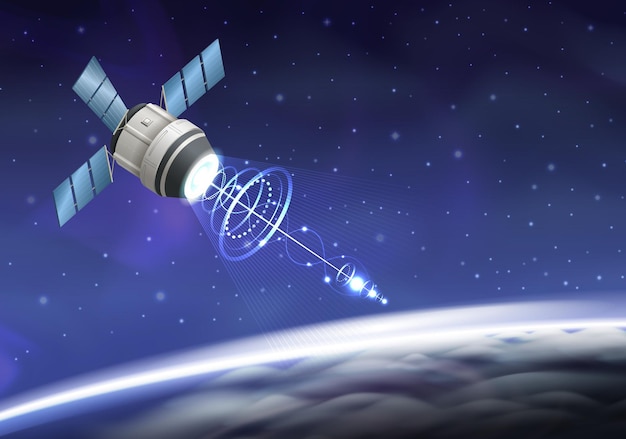In an age where connectivity fuels nearly every aspect of our lives, satellite internet emerges as both a beacon of hope and a source of contention. For those in rural or underserved areas, it offers a lifeline to the digital world, promising high-speed access where terrestrial options fall short.
Yet, beneath this glossy surface lies a landscape dotted with complexities. Monthly fees can skyrocket, latency fluctuations may disrupt online activities, and data caps could curtail streaming pleasures.
As you weigh the potential benefits against the pitfalls, the question remains: is investing in satellite internet truly a worthwhile endeavor? In the following exploration, we will delve into the multifaceted nature of satellite internet, examining its advantages and drawbacks to help you make an informed decision in this digital age.
Pros of Satellite Internet

Satellite internet offers distinct advantages that make it an appealing option for many users, particularly those in remote or rural areas where traditional broadband options can be limited or nonexistent. One of the standout benefits is its wide coverage; since satellites orbit the Earth, they can provide internet access to virtually any location, bridging the digital divide for communities that have been historically underserved.
Moreover, advancements in satellite technology have led to improved speeds and reduced latency, allowing users to stream videos, engage in online gaming, and participate in video calls with greater ease than ever before. Additionally, the installation process is often straightforward, requiring minimal infrastructure, which can be less disruptive compared to laying down cables.
For adventurers and travelers, satellite internet also offers reliable connectivity on the go, proving invaluable for both personal and professional use in the great outdoors. Overall, the versatility and accessibility of satellite internet position it as a viable choice for individuals seeking dependable online connectivity.
Cons of Satellite Internet
While satellite internet can be a lifeline for remote areas, it does come with significant drawbacks. One of the most glaring issues is latency; the time it takes for data to travel to and from satellites can result in frustrating delays during activities like gaming or video conferencing.
Additionally, weather conditions can wreak havoc on satellite signals, leading to interruptions and unreliable service when you need it most. Moreover, data caps are frequent, forcing users to fret over their consumption, particularly during heavy usage months.
Finally, the initial setup costs and equipment can be steep, making it a pricey option for those who might only need basic connectivity. All these factors combined paint a picture of a service that, while beneficial in certain contexts, may fall short for those seeking seamless, affordable internet access.
Future of Satellite Internet Technology

The future of satellite internet technology is poised for a transformative leap, driven by innovations that promise faster speeds and broader accessibility. With companies like SpaceX’s Starlink and Amazon’s Project Kuiper leading the charge, a new era is dawning where satellite constellations in low Earth orbit (LEO) can deliver high-speed connectivity to even the most remote corners of the globe.
Imagine a world where rural communities, once tethered to slow or unstable connections, can enjoy seamless streaming and gaming, elevating not just entertainment but also remote learning and telehealth services. However, challenges remain—issues of latency, cost, and regulatory hurdles must be addressed, as the race to harness this technology accelerates.
As we look ahead, the integration of AI in managing satellite networks could further enhance efficiency, improving user experiences and paving the way for a more interconnected future. Will this be a revolution in connectivity, or will it falter under its own ambitions? Only time will tell.
Conclusion
In conclusion, satellite internet presents both significant advantages and notable drawbacks that potential users must carefully consider before making an investment. The accessibility it offers satellite internet Philippines, is a crucial benefit for those lacking alternative broadband options. However, limitations such as latency issues, data caps, and cost can deter others from opting for this service.
Ultimately, whether satellite internet is worth the investment hinges on individual needs, location, and budget. By weighing these factors, consumers can make informed decisions that best suit their connectivity requirements.

